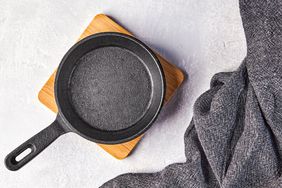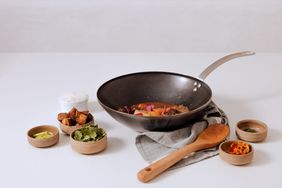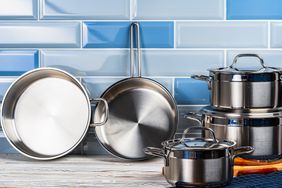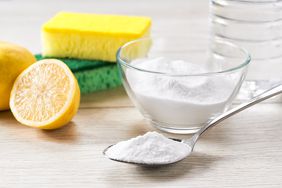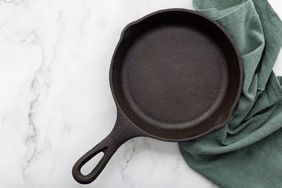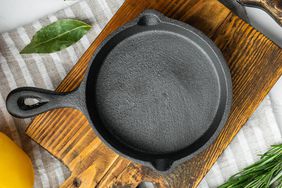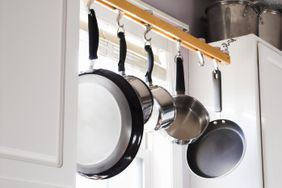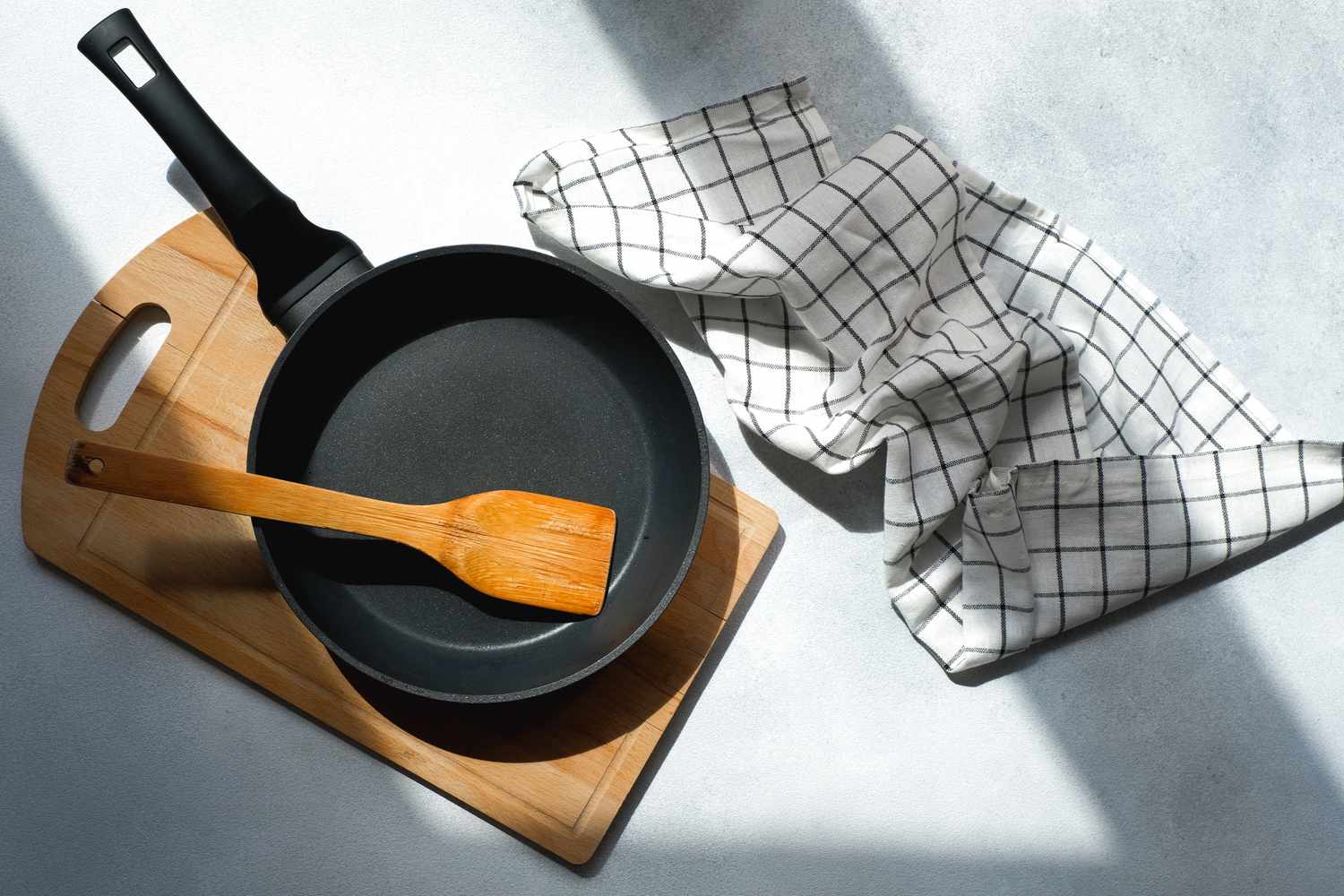
Aleksandr Zubkov/Getty Images
In many kitchens, a cast-iron skillet is an essential piece of cookware that can last for generations when cared for properly. However, if it's left in the sink for too long or not dried off thoroughly, cast iron can develop a layer of rust that interferes with its protective seasoning and makes it difficult to cook on. Luckily, even with rust buildup, the durable cookware can still be salvaged when you're armed with the right cleaning tools and method.
- Alicia Sokolowski, president and co-CEO of AspenClean
- Marla Mock, president of Molly Maid, a Neighborly company
Why Cast-Iron Pans Get Rusty
Cast-iron pans can develop rust if they are exposed to moisture and oxygen for extended periods of time. "The metal is susceptible to oxidation; therefore, rust can appear on your cast iron," says Alicia Sokolowski, the president and co-CEO of AspenClean. Cast iron is porous, so if it is left to soak, put in the dishwasher, or not dried after washing, for example, rust can occur.
Materials Needed
Make sure you have these materials on hand when cleaning a rusty cast-iron item.
- Steel wool or a stiff brush
- Natural dish soap
- White vinegar
- Baking soda
- Kitchen towel
How to Clean a Rusty Cast-Iron Pan
Removing rust from a cast-iron pan is essential in order to prevent further damage. "Rust is a form of corrosion that can continue to eat away at the metal if left untreated," says Sokolowski. "By removing rust promptly, you can prevent further deterioration." Additionally, rust can seep into your food when cooking and change its flavor, says Marla Mock, President of Molly Maid, a Neighborly company.
- Use steel wool or a stiff brush to remove loose rust, making sure to remove as much surface rust as possible.
- If the skillet is particularly dirty, wash it with natural dish soap and warm water. (Note: Avoid using dish soap too regularly, as it can strip away the pan's seasoning.)
- Fill the sink with equal parts white vinegar and water.
- Soak your pan in the vinegar solution. Let it soak for 30 minutes to an hour, but not more than this.
- After soaking, use the steel wool or brush to scrub the skillet again. The vinegar will break down the rust.
- If you still see some rust spots, mix baking soda with a small amount of water to create a paste.
- Apply the paste to rusted areas and scrub with the steel wool or brush.
- Rinse the skillet thoroughly with water to remove any remaining vinegar or baking soda.
- Dry the skillet completely using a kitchen towel.
Re-Season Your Cast-Iron Skillet After Cleaning
After removing rust from your cast-iron skillet, you must re-season it. Seasoning is a protective layer of oil that's baked onto cast iron in the oven, making it naturally nonstick over time. To season cast iron, apply a thin layer of cooking oil to the surface and place the skillet upside down in an oven preheated to around 450 degrees Fahrenheit for an hour.
How to Prevent Rusting on Cast Iron
Prevent your cast iron from future rusting by knowing how to care for it properly.
- Seasoning your cast-iron skillet after deep cleaning is essential as it protects the surface from direct contact with oxygen and moisture.
- Be careful when cooking acidic foods in a cast-iron skillet. Those ingredients can strip away the seasoning and make the iron more prone to rusting, says Sokolowski.
- Cast-iron cookware should never be put in the dishwasher as it can cause rust, says Mock.
- Use dish soap in moderation when cleaning cast iron. Too much soap can strip the seasoning away, making the skillet less rust-resistant, says Sokolowski.
- Regularly use your cast iron skillet to help maintain its seasoning. The natural oils from the food contribute to the protective layer on the surface, says Sokolowski.




